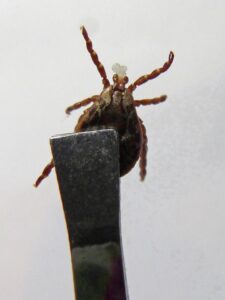When you decide to become the owner of a dog, you will undoubtedly be anticipating having to deal with some medical and health issues from time to time. Worming, flea prevention and regular vaccinations are all par for the course when it comes to canine companionship. However, something that you may not be expecting to have to consider is diabetes.
Affecting around 25 million Americans, you could be forgiven for thinking that diabetes is a condition restricted to humans. However, diabetes does also occur in dogs, with some breeds being more susceptible to the condition than others.
Thankfully, although there is no known cure it is a manageable condition. That said, prevention is far better than trying to manage the condition. Not only will taking steps to prevent diabetes in your dog make him healthier, but it will also spare you the expense and stress of treatments to keep his diabetes under control.
Which Breeds Are More At Risk Of Developing Diabetes?
Some of the breeds of dog that are at greater risk of developing canine diabetes includes, but is not limited to:
– Bichons
– Cocker Spaniels
– Dachshunds
– Doberman Pinschers
– German Shepherds
– Golden Retrievers
– Labrador Retrievers
– Pomeranians
– Schnauzers
– Terriers
However, mixed and cross breeds are still susceptible to diabetes, particularly if they are overweight. Some studies also show that bitches are more likely to develop the condition because of the changes in their reproductive hormones whenever they go through a season.
How Can I Prevent My Dog From Diabetes?
Although there is no guarantee that your canine companion won’t get diabetes during his life time, there are certainly things that you can do that will improve his overall health and reduce his risk of developing the condition.
Help Your Dog Maintain A Healthy Weight
Obesity is the main cause of diabetes in humans, and is definitely a contributing factor in dogs who develop the condition. A healthy weight won’t only help prevent diabetes, but it will also help protect against a variety of other health conditions including heart problems, stroke and arthritis.
To help your pet maintain a healthy weight, ensure that you follow the recommendations made by Country Veterinary Clinic about his diet. Choose quality dog food as it tends to offer the best nutrition, and don’t offer up too much sugary snacks.
You should also make sure you aren’t overfeeding your pooch. Dogs should generally consume around 20 to 30 calories per pound of body weight each day depending on how much exercise they do. The general guideline is that if you can’t feel your dog’s ribs, he is probably overweight.
Take Your Dog For Plenty Of Exercise
Regular exercise is crucial for keeping your furry friend fit and healthy, and it will also help with weight management. Different dogs can manage different amounts of exercise – Country Veterinary Clinic will be able to advise you how much activity your dog should be doing each day to keep them healthy.
Take Your Dog For Regular Check-Ups With Country Veterinary Clinic
Our veterinarian is a vital part of your dog’s healthcare team and has the knowledge, training and experience to be able to identify any potential health problems early including diabetes and other conditions which could increase the likelihood of your pet developing diabetes. Know more about the Pet Examination suited for your furry friend.
Get Your Female Dog Spayed
Not only will spaying your bitch help prevent unwanted pregnancy and the overpopulation crisis, but you can also reduce the likelihood of her developing a range of other problems including diabetes and even female cancers.
Symptoms Of Diabetes
The symptoms of canine diabetes are not all that dissimilar to the human symptoms of the condition. Some of the primary signs to watch for include:
– Changes in appetite/thirst (particularly increased thirst)
– Dehydration
– Increased urination
– Lethargy
– Unusually sweet-smelling breath
– Weight loss
If you are concerned about your dog, or if you would like to know more about canine diabetes, Contact Us and speak to our veterinarian.



